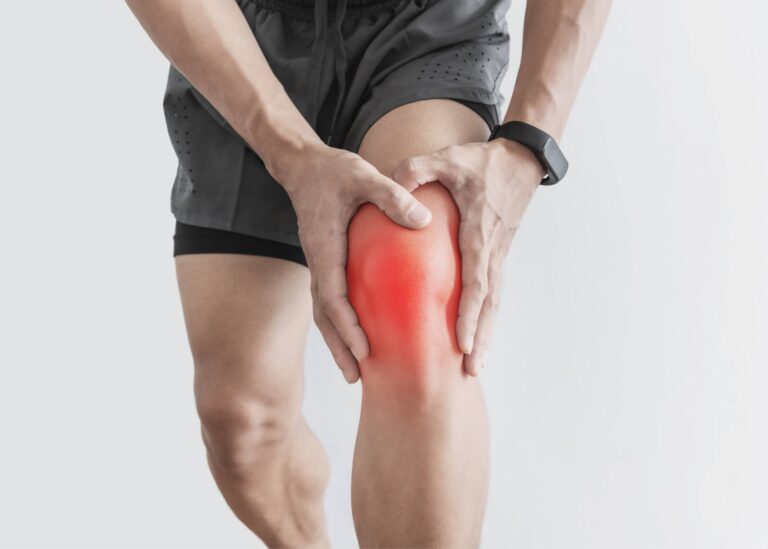Physical Therapy for Shoulder Pain in East Delhi.
Shoulder pain can significantly impact your daily activities and overall quality of life. Whether it’s due to an injury, overuse, or an underlying condition, seeking effective treatment is essential. Physical therapy offers a comprehensive approach to managing shoulder pain, focusing on reducing pain, improving mobility, and restoring function. If you’re looking for the best shoulder pain treatment in East Delhi, this guide will help you understand the benefits of physical therapy and how to choose the right provider.
Understanding Shoulder Pain
Common Causes of Shoulder Pain
- Rotator Cuff Injuries: These are among the most common causes of shoulder pain, resulting from tears or inflammation of the rotator cuff tendons.
- Frozen Shoulder: Also known as adhesive capsulitis, this condition causes stiffness and pain in the shoulder joint.
- Arthritis: Osteoarthritis or rheumatoid arthritis can lead to shoulder pain due to joint inflammation.
- Bursitis: Inflammation of the bursa, a fluid-filled sac that cushions the shoulder joint, can cause pain.
- Tendinitis: Inflammation of the tendons in the shoulder can result from overuse or repetitive movements.
Benefits of Physical Therapy
1. Pain Relief
Physical therapy employs various techniques to alleviate pain, including manual therapy, exercises, and modalities such as ultrasound or electrical stimulation.
2. Improved Mobility
Therapists work on improving the range of motion in the shoulder joint through stretching and mobility exercises.
3. Strengthening Muscles
Strengthening the muscles around the shoulder helps support the joint and prevent further injuries.
4. Personalized Treatment Plans
Physical therapists create tailored treatment plans based on the specific needs and conditions of each patient.
What to Expect from Physical Therapy
1. Initial Assessment
Your first session will involve a thorough assessment of your shoulder pain, including medical history, physical examination, and functional testing.
2. Treatment Plan
Based on the assessment, the therapist will develop a personalized treatment plan that includes specific exercises, manual therapy techniques, and other modalities.
3. Regular Sessions
Regular therapy sessions are essential for monitoring progress and making necessary adjustments to the treatment plan.
4. Home Exercise Program
Therapists often provide exercises to be done at home to reinforce the benefits of in-clinic sessions.
Finding the Best Shoulder Pain Treatment in East Delhi
When seeking shoulder pain treatment in East Delhi, it’s crucial to find a reputable and experienced provider. Pain X is a leading clinic offering comprehensive physical therapy services for shoulder pain.
Choosing the Right Physical Therapist
1. Qualifications and Experience
Ensure the therapist is licensed and has experience in treating shoulder pain. Look for certifications and training in orthopedic physical therapy.
2. Patient Reviews
Check online reviews and testimonials to gauge the satisfaction levels of previous patients. Positive feedback indicates a reliable and skilled therapist.
3. Treatment Approaches
Inquire about the treatment approaches used by the therapist. A good provider will use a combination of manual therapy, exercises, and modalities to address shoulder pain.
4. Clinic Facilities
Visit the clinic to ensure it is well-equipped with the necessary tools and technology for effective treatment.
How Physical Therapy Works for Shoulder Pain
1. Manual Therapy
Manual therapy techniques, such as joint mobilization and soft tissue massage, help reduce pain and improve mobility.
2. Therapeutic Exercises
Exercises designed to strengthen the shoulder muscles and improve the range of motion are integral to the treatment plan.
3. Modalities
Modalities like ultrasound, electrical stimulation, and heat/cold therapy can help reduce pain and inflammation.
4. Education
Therapists educate patients on proper posture, body mechanics, and ways to prevent future injuries.
Preventing Shoulder Pain
1. Proper Posture
Maintaining good posture, especially during activities that involve repetitive shoulder movements, can prevent strain and pain.
2. Ergonomics
Ensure that your work and home environments are ergonomically friendly to reduce the risk of shoulder pain.
3. Regular Exercise
Regular exercise, including strength training and stretching, can help keep your shoulder muscles strong and flexible.
4. Avoid Overuse
Avoid repetitive overhead movements and give your shoulders adequate rest to prevent overuse injuries.
Conclusion
Physical therapy is a highly effective treatment for shoulder pain, offering pain relief, improved mobility, and long-term benefits. By choosing the right provider for shoulder pain treatment in East Delhi, such as Pain X, you can ensure a comprehensive and personalized approach to managing your shoulder pain. Understanding the benefits and what to expect from physical therapy will help you achieve the best possible outcome and regain your quality of life.







